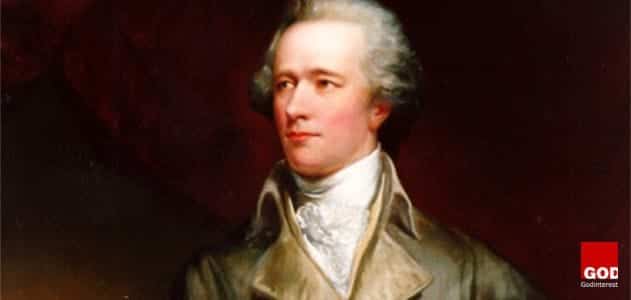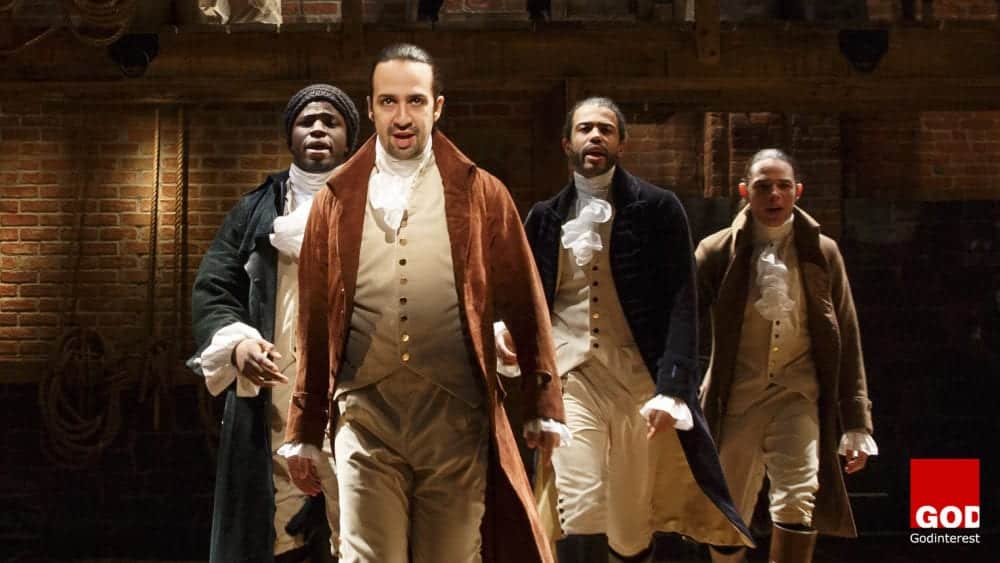That Alexander Hamilton became anything at all in this world was a remarkable accomplishment. That he became one of the most influential Founding Fathers of our country seems almost miraculous. To understand the unlikely nature of Hamilton’s rise, we need only understand where he came from. In his early years, Hamilton endured more hardship, tragedy, and loss than any person should have to bear in a lifetime.

Hamilton and his older brother James were born into a poor family on the island of Nevis in the West Indies. Their mother Rachel, having fled a previously unhappy marriage without obtaining a divorce, was unable to remarry, and lived in a common-law relationship with the boys’ father, James. The circumstances of Rachel’s first marriage and her common-law relationship earned her a reputation as a notorious woman, creating a stigma of illegitimacy around James and Alexander.
When Hamilton was a young boy, his father abandoned the family, leaving Rachel to raise the two boys alone. When Hamilton was twelve, Rachel died from a raging fever, a sickness that almost took Hamilton’s life as well. Both boys found themselves, at very young ages, as orphans in utter poverty.
Their older cousin, a thirty-two-year-old man named Peter Lytton, became the boys’ legal guardian. A widower, Peter struggled financially as a result of a number of poor business deals. Only a few months after taking the two boys in, he committed suicide, adding yet another layer of tragedy to Hamilton’s life.
Author Ron Chernow sums up the unbelievable loss that Hamilton experienced throughout his early years:
“Their father had vanished, their mother had died, their cousin and supposed protector had committed bloody suicide, and their aunt, uncle, and grandmother had all died. James, sixteen, and Alexander, fourteen, were now left alone, largely friendless and penniless. At every step in their rootless, topsy-turvy existence, they had been surrounded by failed, broken, embittered people.”
How could this boy, who endured such incredible hardship, end up as an influential Founding Father of our country? Miranda begins his musical with this very question.
The answer begins with yet another devastating tragedy. In 1772, a massive hurricane descended onto St. Croix, causing widespread destruction and loss. Hamilton wrote an essay to describe the horror of the event. Through a series of fortunate circumstances, the letter was published anonymously in a local newspaper. Readers were greatly impressed by the obvious intellect and skill of the author.
The young Hamilton interpreted the hurricane as divine retribution from God, and called the people to repentance and faithfulness. Hamilton wrote,
“Where now, oh! vile worm, is all thy boasted fortitude and resolution? Death comes rushing on in triumph. . . See thy wretched helpless state and learn to know thyself. . . . Despise thyself and adore thy God. . . . Succour the miserable and lay up a treasure in heaven.”
A few local business men felt compelled to act when the seventeen-year-old Hamilton was revealed as the author. Chernow writes,
“Hamilton did not know it, but he had just written his way out of poverty. This natural calamity was to prove his salvation. . . . A subscription fund was taken up by local businessmen to send this promising youth to North America to be educated.”
Hamilton’s character sings about this experience, reflecting on how this act of grace changed the entire direction of his life. Everything that Hamilton became, every opportunity afforded to him in America, was made possible by this generous gift. In other words, Hamilton built his life on the foundation of grace.
What is true of Hamilton is true of all of us. Where would any of us be without the grace of God? Isn’t the foundation of each of our lives built squarely on God’s grace alone? The story of God’s activity in our lives is of course, above all else, a story of grace.
The grace that formed the foundation of Hamilton’s life is now being offered through Lin-Manuel Miranda’s Hamilton musical to students throughout New York City. Through a partnership with the Theatre Development Fund (TDF), six hundred students were given the opportunity to attend a matinee performance of Hamilton. Ginger Bartkoski Meageher of TDF said that the experience moved the students deeply. Any time we encounter grace, it transforms us.
The Rockefeller Foundation expanded this grace significantly. A $1.5 million gift enabled 20,000 students from New York public schools to see Hamilton in 2016. Hamilton producers hope to offer a similar program to other cities on the national tour. These tickets represent grace given to these students, as many of them never could have obtained them on their own.
This gift of grace could possibly transform their lives, and transform the givers’ lives in the process. After one of the student performances, Miranda tweeted,
“The student matinees are, it turns out, the highlights of my life. I can’t begin to describe how it feels.”
The above is an excerpt from God and Hamilton: Spiritual Themes From The Life Of Alexander Hamilton & The Broadway Musical He Inspired by Kevin Cloud. The book will be available on Amazon in June, 2018.
Visit Us
Godinterest Community Fellowship is dedicated to proclaiming Christ and set apart to save and empower lives. Sign-up to receive inspiration to draw closer to God each day.
Our Location: Central London Community Church - Crawford Place, London, W1H 5JE
Regular Meetings Divine Service: Every Saturday from 11:15 AM
Godinterest is sponsored by Dean Jones of Jamaica Homes





